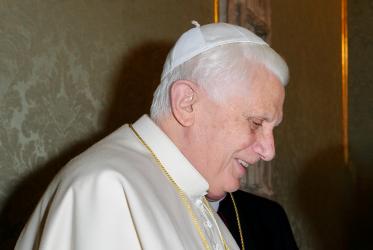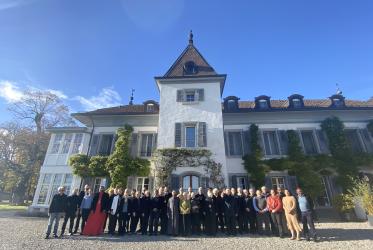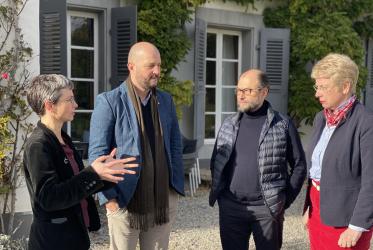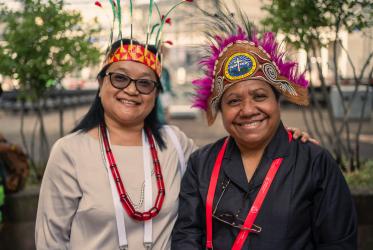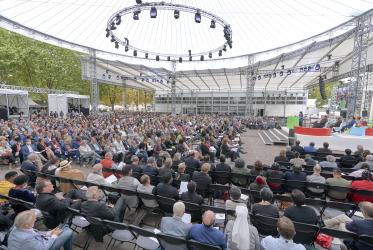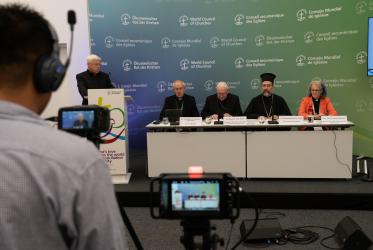Displaying 101 - 120 of 883
31 December 2022
Towards a Global Vision of the Church Volume I
Explorations on Global Christianity and Ecclesiology, Faith and Order Paper 234
14 November 2022
From hostility to hospitality: Closing prayers at Karlsruhe
09 September 2022
Études bibliques: comprendre comment l’amour du Christ nous mène
07 September 2022
Bible studies bring ways to learn how Christ’s love moves us
06 September 2022
Indigenous women struggle for identity in Asia and beyond
05 September 2022
Saturday morning prayers invoke movement for truth and righteousness
03 September 2022
